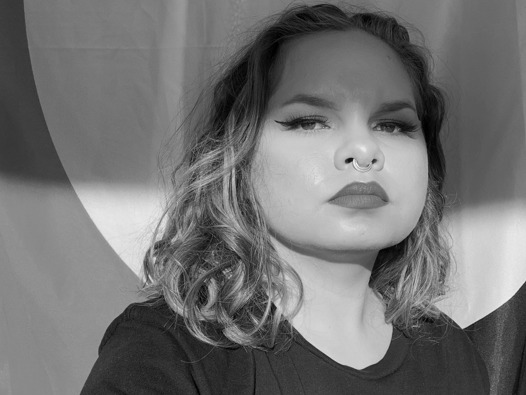
All the teachers in primary school, who commented that ‘Of course you came second in cross country, Aboriginal people are really good at running fast!’. Then when I got to high school and all of my friends realised that putting in effort wasn’t cool, it was okay for them to walk the cross country without hassle but for me to do it was lazy because it’s really easy for black people to run fast, so why don’t I just do it.
My white mother coming into mine and my sister’s room when it was a mess and called it ‘a gin’s camp’, which would have me promptly cleaning my room to her standard. I strived to become the best at cleaning in my family, and naturally, was rewarded with the extra responsibility of having to maintain a clean 9-person household.
My grade six teacher, a white woman, spoke to the class about the Stolen Generation. She pointed out all the ‘really Aboriginal’ students who wouldn’t have been allowed in the classroom 30 years ago. I am mentioned as an afterthought and distinctly remember feeling frustrated but also validated. Frustrated that I was called out last and validated that I was even included at all.
In high school, I was asked if I’m sure that I’m Aboriginal because I’ve got light skin and despite my blunt assertions that I absolutely am, my saving grace was a white boy who had seen my father and could vouch for me. That my identity was apparently up for debate in casual classroom conversation and would only be granted security on the word of someone who lives in a reality starkly different to my own.
Whenever I grabbed extra napkins at a hot food place, my supposed friends would note that it was because the napkins were free and black people love free stuff. Also, I shouldn’t forget that I was poor so I needed all the little extra freebies that I could get my hands on. A sound logic that didn’t carry over when I was awarded a scholarship upon being accepted into uni, because getting money for being socially and historically disadvantaged when I’m only half black doesn’t make any sense, to them.
My white high school friends calling me the N word because that’s what I was, silly! and of course they felt comfortable saying it around me because I was one of their two black friends. They could only say those kinds of jokes around us though because they were comfortable and the real blackfullas wouldn’t get the joke.
When I would try out the trendy hairstyles for thick hair from Girlfriend magazine but they would never look right on my hair because it was also curly. When I was 19, I learned that the way I looked after my hair was for straight hair and when I was 22 I bought the right kind of brush to use on my curls. Now I get told that I look messy and/or unprofessional when my hair inevitably frizzes out in the tropical heat.
The fact that I held so much internalised racism up until the age of fifteen because everything that I knew about being Aboriginal was through an entirely white lens. And when I started to question white peoples’ supposed ‘knowledge’ of Aboriginal people then I was labelled as divisive and angry. As if the problem was in my knowing about the destruction caused by systems of genocide, rather than the genocide itself. Yes, genocide is bad but isn’t having the internet that good they sort of cancel each other out?
The one white girl in college who tried to force veganism down my throat by stating that her love for animals was the same as my passion for my people; ‘I get upset at people eating meat the same way that you would get upset if someone ate an Aboriginal’. When I asked her who started mass food production and the farming industry complex and who actively benefits from the colonisation of First Nations people, that was, of course, ‘beside the point’ and ‘not relevant’ to what she was trying to say. Note: one of the biggest regrets in my life will always be not slapping the shit out of this girl.
Finding out that my father was disappointed that I and my sisters didn’t come out blacker, even though my mother is a white woman. The irony that now I wear his black features in spite of my lighter skin, as I am reminded constantly by family members who see his face in mine.
The type of black man that was never looking for anything serious but then a couple months later he would be in a serious relationship with a white woman. The fulla that is adamant that he loves his community and his mother and his grandmothers especially, but would never seriously date a black woman because he can’t have an intelligent conversation with one. And that same type of fulla who doesn’t think he could settle down with a white woman but black women who are unequivocally black just aren’t his type. He doesn’t like women who are too angry, too serious, too radical, too loud and too argumentative.









